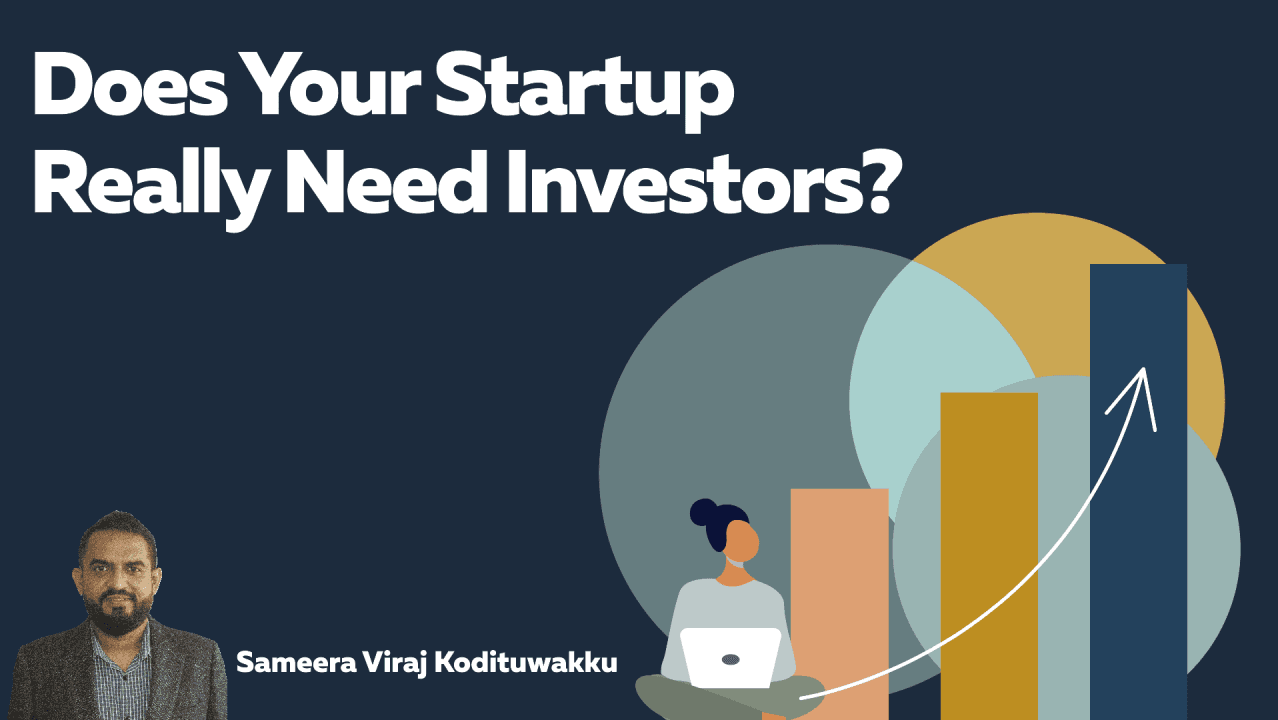Blog No 06
Does Your Startup Really Need Investors?
September 1, 2024

Securing investment is a major milestone for any startup, but it's not always clear whether it's the right step for every business. From determining the perfect timing to choosing the type of investment that best suits your startup's needs, the decisions surrounding funding are critical and can significantly impact the trajectory of a company.
Historically, founders often bootstrapped their startups, pouring personal savings into their products. Growing a product organically in this manner typically takes longer, as financial constraints can limit the speed of development and market reach. With the introduction of venture capital, the growth dynamics changed significantly. Investments can accelerate product development dramatically—what might have originally been planned as a five-year growth trajectory could potentially be compressed into just one year. However, this speed comes at a cost. Founders often need to exchange equity in their company for capital, giving away shares to investors who are primarily motivated by profit. While founders typically operate out of passion and a deep-seated commitment to their product and company, investors are focused on returns. This can lead to a potential misalignment: once investors are involved, you might find yourself needing to align your product vision with their expectations, which isn't always conducive to the original intentions of the startup. For founders looking at a 'build, grow, and exit' model, securing the right investment can indeed accelerate the journey. It allows for rapid scaling that might not be feasible through bootstrapping alone.
Do You Really Need Investors?
Startups seek investment for many reasons, but primarily for financial support and business expertise. However, it's essential to assess whether your startup genuinely needs external funding or if bootstrapping could be a more viable option. Factors influencing this decision include your market speed to entry, scale of operations, and long-term business goals.
Timing Is Everything
Choosing the right time to seek investment can be as crucial as the decision to seek investment itself. Common wisdom suggests looking for funding when:
- You have a proven concept with some traction or market validation to show potential investors.
- You need to scale operations quickly to capitalize on market opportunities.
- You require expertise and mentoring that investors can provide to navigate competitive and complex markets.
Types of Investments
-
Equity Financing: Investors purchase a share of your company in exchange for capital. This is ideal for startups that need significant funding and strategic guidance.
-
Debt Financing: Involves borrowing money that you will need to repay over time, typically with interest. Suitable for those who want to retain full control of their business.
-
Convertible Notes: Short-term debt that converts into equity, typically at a later financing round. This can be advantageous for startups still establishing their valuation.
Investor Relations and Communication
Maintaining effective communication and managing investor relationships are key to navigating the post-investment landscape. Establishing regular updates, being transparent about challenges, and celebrating milestones can help maintain a healthy relationship with your investors.
Alternative Funding Options
Beyond traditional equity and debt financing, startups might consider government grants, crowdfunding platforms, or revenue-based financing. These alternatives can offer less dilutive or more flexible capital solutions for startups not ready for traditional equity sales.
Pros and Cons of Having Investors
Pros:
- Financial Muscle: Immediate access to cash can help fuel growth, expand operations, and hire necessary talent.
- Mentorship and Expertise: Many investors bring invaluable industry experience and can offer strategic guidance.
- Credibility and Network Access: Affiliation with known investors can enhance your startup’s credibility and provide access to a broader network of potential partners and customers.
Cons:
- Dilution of Control: Investors may want a say in business decisions, potentially leading to conflicts.
- Pressure and Expectations: Investors look for a return on their investment, which can pressure startups to prioritize short-term gains over long-term sustainability.
- Complexity in Management: Managing investor relationships and expectations can divert attention from day-to-day business operations.
Exit Strategies
Understanding potential exit strategies is crucial when considering investment. Whether aiming for an IPO, acquisition, or another buyout option, aligning these strategies with investor expectations can influence funding decisions and business strategy.
Impact of Investment on Company Culture
The influx of external funding can significantly influence company culture, sometimes aligning it more with investor expectations than with original startup values. Balancing growth with culture is essential for long-term success.
Deciding whether to seek investors for your startup involves balancing rapid growth and potential dilution of control. The choice to invite investment should align with your startup's long-term strategy and operational philosophy, considering how it will impact your ability to steer the company according to your original vision and values. By considering various funding options and understanding the implications of investor relationships, startups can better navigate the complex landscape of startup financing.
#StartupFunding #VentureCapital #StartupLife #Entrepreneurship #InvestmentStrategy #BusinessGrowth #TechStartups #EquityFinancing #DebtFinancing #ConvertibleNotes #InvestorRelations #FundingOptions #BusinessStrategy #StartupCulture #BusinessInvestment